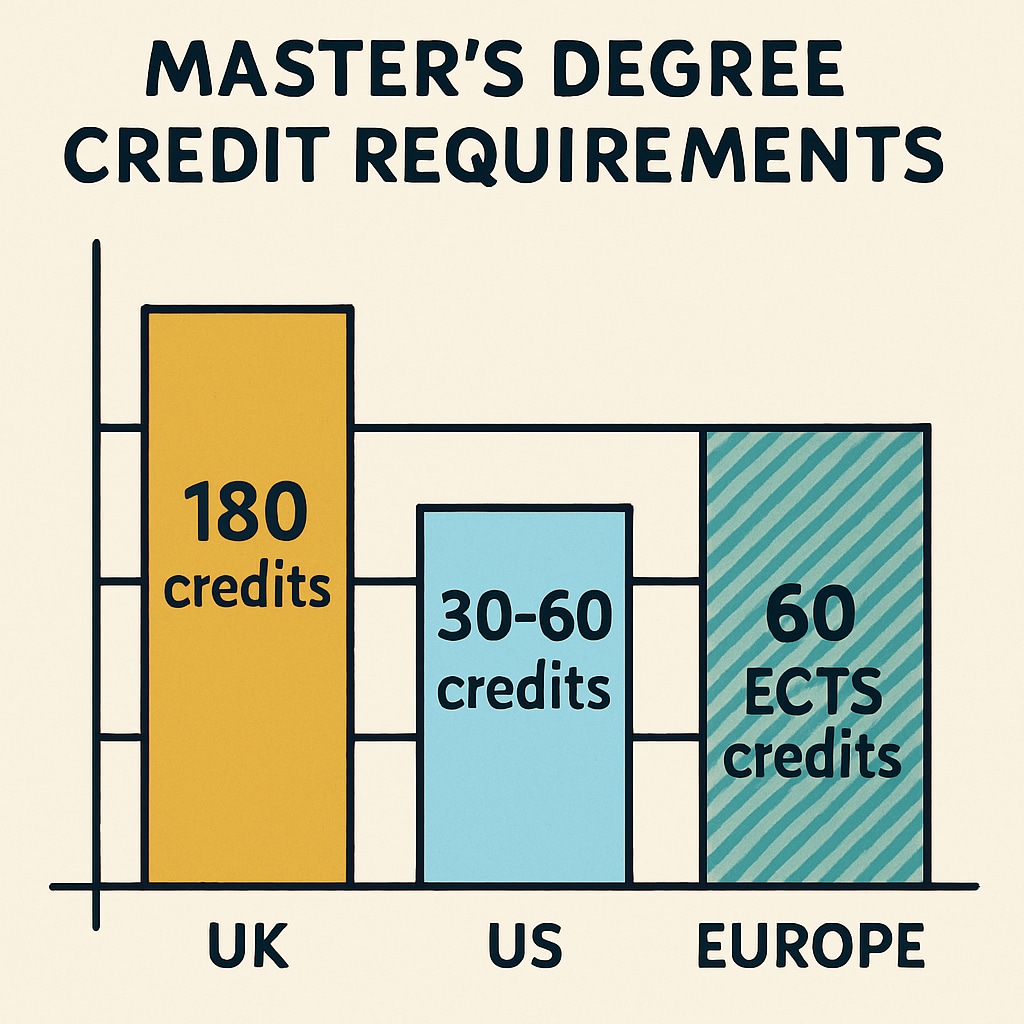Earning a UK master’s degree is a significant accomplishment; however, many students, especially international ones, are unaware of the challenges tied to credit requirements and dissertation completion. The UK higher education system imposes rigorous academic standards, and fulfilling the credit requirements involves more than just completing coursework and a dissertation. This article will delve into the complexities of credit recognition, comparing UK standards with those of other countries, and offering valuable planning tips for prospective students.

Understanding UK Master’s Credit Requirements
In the UK, a full-time master’s degree typically requires 180 credits, which are divided into taught modules and the dissertation. Taught modules often account for 120 credits, while the dissertation contributes the remaining 60. However, simply submitting a dissertation does not guarantee automatic credit recognition. Students must meet strict academic standards, including originality, research depth, and proper formatting, to earn these credits.
For international students unfamiliar with the UK’s academic expectations, the dissertation stage can be particularly daunting. The process usually requires extensive independent research, thorough analysis, and the ability to present findings in a structured and coherent manner. Failure to meet these criteria may result in the need for additional work, such as supplementary modules or resubmissions, which can delay graduation.
How the UK System Compares Globally
When compared to other countries, the UK’s credit system is notably different in its structure and expectations. For instance:
- In the United States, master’s degrees typically require 30-36 semester credits, equivalent to around 60-72 UK credits. While dissertations (or theses) are often required, they may not carry as much weight as in the UK.
- In Europe, the Bologna Process ensures a standard of 90-120 ECTS credits for master’s programs, with dissertations accounting for 30-40 credits. This system is more flexible compared to the UK’s rigid 180-credit framework.
These differences can pose challenges for international students who plan to use their UK degree for further study or work abroad. Understanding the UK’s credit system is essential for ensuring smooth academic and professional transitions.

Post-Dissertation Challenges
One of the lesser-known hurdles of earning a UK master’s degree is the potential for additional academic requirements after dissertation submission. For example:
- If the dissertation fails to meet the required standard, students may need to revise and resubmit their work.
- In some cases, universities may require students to complete extra modules to compensate for deficiencies in their dissertation.
- Administrative reviews can further delay the awarding of the degree, particularly if there are discrepancies in credit allocation.
These challenges emphasize the importance of thorough preparation and understanding of the academic expectations before embarking on a master’s program in the UK.
Tips for Prospective Students
To avoid potential pitfalls, prospective students should consider the following tips:
- Understand the credit system: Familiarize yourself with the 180-credit requirement and how credits are distributed across modules and the dissertation.
- Plan your dissertation early: Start thinking about your research topic and methodology during the first semester to ensure sufficient time for completion.
- Seek academic support: Utilize university resources such as writing centers, academic advisors, and peer groups to improve your dissertation quality.
- Prepare for contingencies: Be aware of the possibility of additional requirements and budget both time and money accordingly.
With proper planning and awareness, students can navigate the complexities of UK master’s degree programs and achieve their academic goals.
Readability guidance: This article uses short paragraphs, clear subheadings, and lists to improve readability. Transition words such as “however,” “therefore,” and “for example” are used to ensure smooth narrative flow. The use of active voice predominates, with minimal reliance on passive structures.


